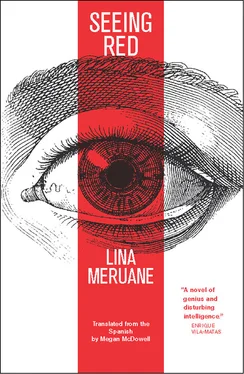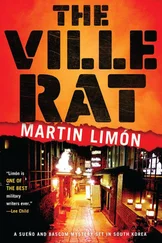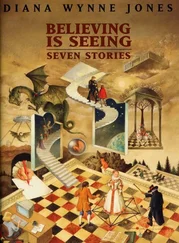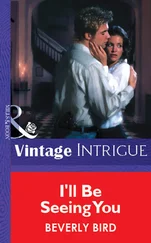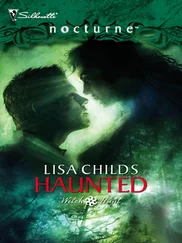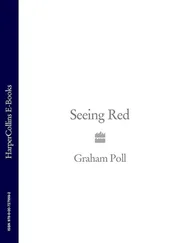Lina Meruane - Seeing Red
Здесь есть возможность читать онлайн «Lina Meruane - Seeing Red» весь текст электронной книги совершенно бесплатно (целиком полную версию без сокращений). В некоторых случаях можно слушать аудио, скачать через торрент в формате fb2 и присутствует краткое содержание. Год выпуска: 2016, Издательство: Deep Vellum Publishing, Жанр: Современная проза, на английском языке. Описание произведения, (предисловие) а так же отзывы посетителей доступны на портале библиотеки ЛибКат.
- Название:Seeing Red
- Автор:
- Издательство:Deep Vellum Publishing
- Жанр:
- Год:2016
- ISBN:нет данных
- Рейтинг книги:3 / 5. Голосов: 1
-
Избранное:Добавить в избранное
- Отзывы:
-
Ваша оценка:
- 60
- 1
- 2
- 3
- 4
- 5
Seeing Red: краткое содержание, описание и аннотация
Предлагаем к чтению аннотацию, описание, краткое содержание или предисловие (зависит от того, что написал сам автор книги «Seeing Red»). Если вы не нашли необходимую информацию о книге — напишите в комментариях, мы постараемся отыскать её.
This powerful, profound autobiographical novel describes a young Chilean writer recently relocated to New York for doctoral work who suffers a stroke, leaving her blind and increasingly dependent on those closest to her. Fiction and autobiography intertwine in an intense, visceral, and caustic novel about the relation between the body, illness, science, and human relationships.
Lina Meruane
Seeing Red — читать онлайн бесплатно полную книгу (весь текст) целиком
Ниже представлен текст книги, разбитый по страницам. Система сохранения места последней прочитанной страницы, позволяет с удобством читать онлайн бесплатно книгу «Seeing Red», без необходимости каждый раз заново искать на чём Вы остановились. Поставьте закладку, и сможете в любой момент перейти на страницу, на которой закончили чтение.
Интервал:
Закладка:
stumbling along
And we all left the party together, saying nothing but thanks, see you later, bye; and I guess the group gradually scattered along the way, because I can’t see them in my memory. The elevator was full of voices, but when we went outside there were only three or four bodies, and then only one walking next to me. Julián was telling me about his job talk at the university or who knows what, while I moved deeper into unprecedented darkness. Ignacio would be behind us, talking his Spanish politics with Arcadio, or maybe he’d gone off to hunt for a taxi. At that hour, on that scrawny island wedged in next to Manhattan, it wouldn’t be easy to find a cab. We’d have been more likely to come across an abandoned wheelchair with a loose spring. A chair would have helped me, made me less vulnerable to the night’s uncertainty. A chair, so much better than a cumbersome cane. And I thought back to that very afternoon when we’d crossed over the river in the tramway along with a dozen people, variously maimed, in their wheelchairs. Roosevelt was an island of wheelchairs where only a few professors and students lived, and no tourists came; it was a poor, protected island that almost no one visited, I thought, thinking next that I should have realized why I’d ended up traveling with all those people beside me, them and me all the same hanging above the waters. On the shore stood Fate and he was raising a question, an admonition. What did you come here looking for? he said, pointing one finger. What did you lose on this island? A chair, I answered, outside of time and circumstance, just a metal chair, with wheels, with pedals and levers and maybe even a button to propel it forward. If only you’d had a little more foresight, you would have your chair, answered my dour inner voice. At least you’d have one for tonight, when you were going to need it. But now the maimed would all be sleeping soundly, with their chairs disabled and parked next to their beds. Mine, my bed, which wasn’t mine but rather Ignacio’s, was still far away. Everything seemed far from me now, and getting ever farther. Ignacio had disappeared and Julián quickened his pace, spurred on by the beers. I was inevitably being left behind. I moved in slow motion, sliding over the slippery gravel, plummeting off curbs, stumbling over steps. Julián must have come back when he realized he was talking to himself, I felt him supporting me by the elbow and saying fizzily, “I’d better help you, looks like you’re a bit drunk, too.” He started to laugh at me and I also started shaking in an attack of panic and booming laughter. And in that laughter or those convulsions Julián dragged me forward, interrogating me, did my feet hurt? were my knees stuck? because, joder , he said Spanishly, why the hell are you going so slow? I kept walking with my eyes fixed on the ground as if that would save me from falling, and with my head sunk miserably between my shoulders I tried to explain what was happening: I left my glasses at home, I can’t see anything. Glasses! And since when do you wear glasses? You’ve kept that nice and hidden! he exclaimed, wasted and dead tired. And warning me that we were walking through a stretch of wet grass, he went on repeating, I can’t believe it! You never wear glasses! Never, it was true. I had never bought a pair of glasses. Until twelve o’clock that night I’d had perfect vision. But by three o’clock Sunday morning, even the most powerful magnifying glass wouldn’t have helped me. Raising his voice and maybe also his finger, like the university professor he would become, Julián brandished his ragged tongue to chastise me. You get what you deserve. And, swallowing or spitting saliva, he announced that the price of my vanity would be to trudge through life, forever stumbling.
tomorrow
(There I am. There I go. Looking out again through the taxi window, staring, trying to grab hold of some bit of the horizon from the highway, the hollowed silhouette of the two pulverized towers, the line of the mutilated sky beside the fragile glow of the star-splashed river, the History Channel neon dazzling above the water. I see it all without seeing it; I see it from the memory of having seen it or through your eyes, Ignacio. The taxi’s headlights sliced through a light nocturnal fog of paper and charred metal that refused to dissipate, that adhered to the glass as condensation. Our driver shoved his way in, cutting off other cars, but he also let others pass him, speeding and honking their horns. You two were dozing and maybe you even fell asleep, rocked by the sharp acceleration and violent braking. I settled my forehead against the window and closed my eyes until your voice shook me, Ignacio, a voice so new in my life I sometimes take a second to recognize it, a voice that also changed tone when you shifted into another language. Your voice was giving instructions in English to the taxi driver: get off at the next exit, cross over to the west, toward the Washington Bridge still ablaze on the horizon. We hadn’t planned on crossing that iron bridge, we weren’t heading for the suburb on the other side where I had once lived and had no intention of returning. I was throwing myself into the present, the only thing I had as we dropped Julián off on the corner where his building was and continued on toward yours, which was now ours. And as soon as we were alone, you took my face in your hands and turned it so I’d look at you. So you could look at me. Your eyes saw nothing extraordinary, they didn’t see what lay behind my pupils. Was it a lot? Much more than ever before, I told you somberly, but maybe tomorrow. Tomorrow you’ll be better. But tomorrow was already today: it only had to grow light, the failing streetlights had only to be eclipsed by the sun. Turban-crowned, the driver stopped abruptly and we slid forward. Don’t move, you said, and then I heard the door slam, and you must have circled around to open the door for me, to give me your hand, warn me to duck my head. From far away, anyone would have thought we were emerging from another era, not a car. We got out of the time machine arm in arm and went up the stairs the same way, toward the elevator and the five floors up. We went arm in arm down the hall until the jangling of keys in the lock. The apartment’s stale air received us. The heat rose from every corner, from the floor now carpetless, from the utterly bare walls, the countless boxes that seemed full of smoldering embers instead of books. We’d spent days packing for our imminent move. I went straight down the hallway to the bedroom and you followed behind: watch out, I’m leaving a glass of water for you here. And we threw ourselves onto the bed and in spite of the humidity we embraced and, oily from sweat, we slept. And the next morning you raised the blinds and sat down beside me, waiting for me to wake up from either my sleep or my life. But I’d been wide awake for hours, not daring to open my eyes. Lucina? I raised an eyelid and then the other and to my astonishment there was light, a bit of light, enough light: the bloody shadow hadn’t disappeared from my right eye, but the one in the left had sunk to the bottom. I was only half blind. And so I accepted your coffee and raised it to my lips without hesitation, and I even smiled, because, in spite of everything. And you were there, and it was as if you were one-eyed, too, you couldn’t understand what had happened. You couldn’t calculate the gravity. You couldn’t bring yourself to ask all the questions. You balled them up and stuffed them, like now, in your pockets.)
Читать дальшеИнтервал:
Закладка:
Похожие книги на «Seeing Red»
Представляем Вашему вниманию похожие книги на «Seeing Red» списком для выбора. Мы отобрали схожую по названию и смыслу литературу в надежде предоставить читателям больше вариантов отыскать новые, интересные, ещё непрочитанные произведения.
Обсуждение, отзывы о книге «Seeing Red» и просто собственные мнения читателей. Оставьте ваши комментарии, напишите, что Вы думаете о произведении, его смысле или главных героях. Укажите что конкретно понравилось, а что нет, и почему Вы так считаете.
